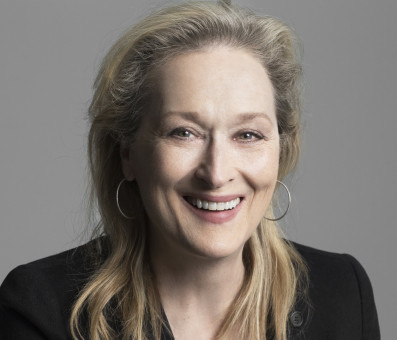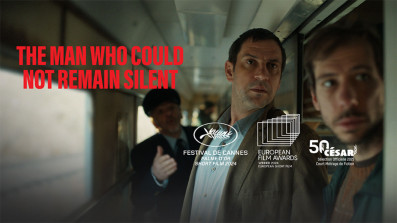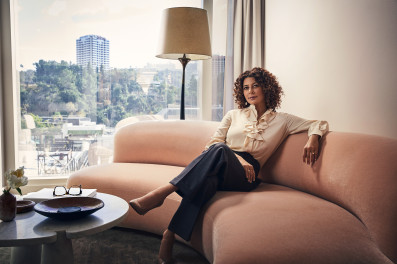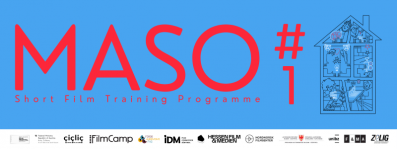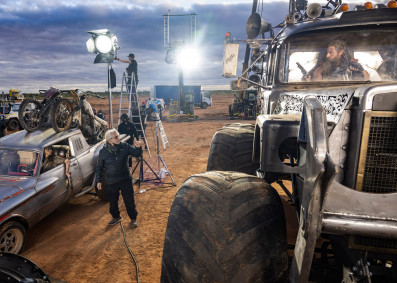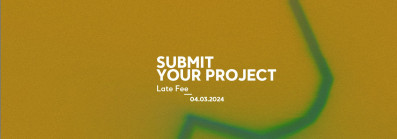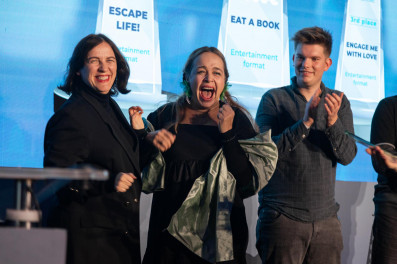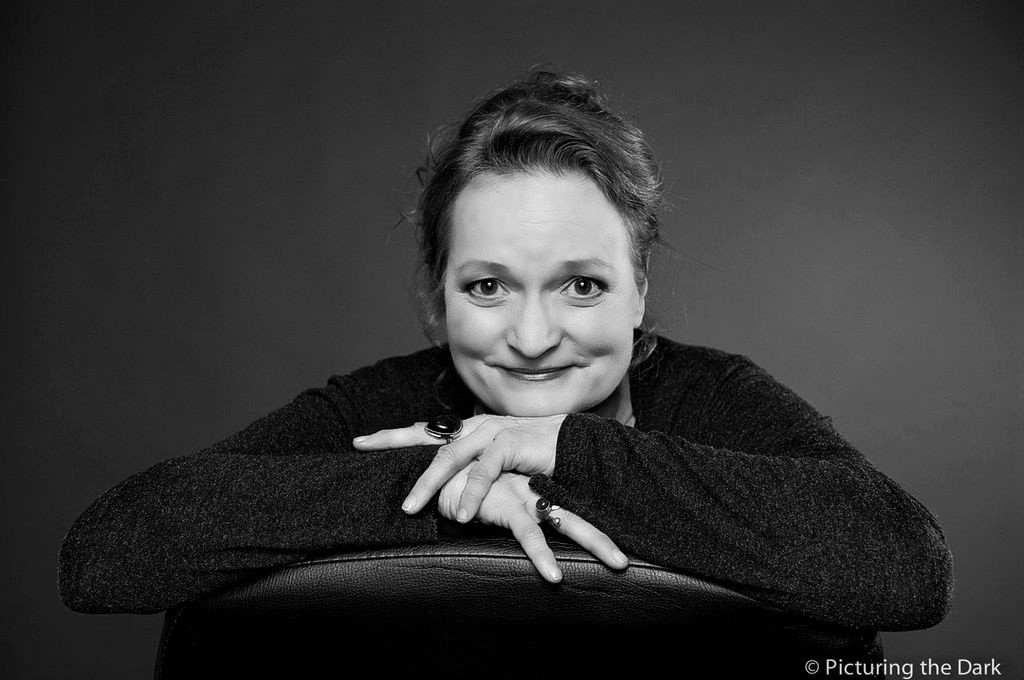
The clown, the actress, the artist, where does one begin and other end? - Interview with Lee Delong
Duart monthly members interview
Lee Delong writes, directs and teaches, and has given countless workshops and masterclasses for acting, directing, and writing students; for animation students; and for professional actors, in various settings: Doha Film Institute; the Croatian National Theatre; Les Gobelins, Ecole de l’Image, Paris; and the University of Viborg Animation School to name a few. Lee was an acting coach on Jasmila Žbanić’s On the Path and Assistant Director on Žbanić’s Love Island.
Lee is often in the Balkans and Croatia and collaborates a lot with our directors and actors, we talked to her about our experiences, the opportunities our employees in the film and theatre industry have, differences in approach to work here and in America and France, and love for clowns. She also revealed to us what she is currently working on, and when we can watch her again in Croatia.
You achieved a notable role in the feature debut of Nina Violić, which she wrote for you. What was it like working on Kick and Scream and what was it like working with Nina and Goran Bogdan? What marks your collaboration with Nina from before?
How could working with my darlings Nina and Goran be anything but wonderful? They are among my favourite actors in Croatia and beyond! I worked with Nina for Jasmila Žbanić's On the Path. That’s where we met, and we’ve been friends ever since. Nina has always been my exterior eye when I work in Croatia. She’s one of four people I ask to see my work before opening night, along with Zrinka Cvitešić. Their artistic opinions are very valuable to me. I also met Goran through Jasmila. She organized a buffoon workshop in Stolac, in preparation for a movie. For buffoon, one is required to create his/her own “costume” with body deformations. Goran was incredible. He had hooves like a horse! And he galloped through that work! So I had an enormous amount of trust in both Nina and Goran when I arrived to Kick and Scream. Also, Nina knows exactly what she wants as a director, which always makes your job easier.
I adore films auteurs. And when someone writes something for you specifically, it’s so comfortable, like putting your foot into a shoe that fits perfectly or taking a bite of your mother’s best pie. It was a real family feeling. Particularly because of Bruno Bajić that played the son. Having a little kid on set is challenging, but it brings everyone together in a warm and fuzzy kind of way. Everyone looks out for him, and you all know that you have to be there for him. Nina and Goran had a very strong relationship with Bruno. Really familial. Nina knew he was right from the start—even though he had no experience and was a risk. The results are there! The kid is so charming, and the camera loves him. The team was perfect.
It doesn’t hurt to have Vanja Černjul on a set, drinking up everything with his gaze. He’s charming, smart, and precise. A great pleasure to work with such an immense talent. I also had the pleasure of working with Zdenka Gold before. She’s Johnny on the spot. I must mention also how much fun it was to have Tina Jesenković and Marija Vrdoljak in Hair & Make-up. I called them my jukebox. They made the inevitable waiting on set so much fun. They always had great music and they knew all the words. They made waiting easy. In truth, I could say something incredibly positive about everyone on the team, from the producers to the drivers, all hand-picked by Nina, and all friends, not just colleagues. For once, I have nothing negative to report about a film shoot!!
Our productions are small, the budgets for film and theatre projects are the same. They often characterize us as insufficiently dedicated. How do you look at all this? How much have things changed in the Balkans in recent years?
It makes me very sad to see how little Croatia invests in film. Serbia turns out movie after movie! There’s no reason why Croatia can’t do that. There’s an enormous talent pool here! The proof is in the number of Croatian actors who are on the world stage, even though there are no agents, no money, little interest. Thank God Sanja Drakulić started Duart! Thank God Vanja Sremac is working for change at Croatian Audiovisual Center! Because that is what is needed. Change.
Croatian film should be a national treasure. With the natural settings that exist here, the possibilities are endless. Countless films have been shot here by Hollywood: The Aviator, Captain America, Spiderman….not to mention Game of Thrones, which became a tourist attraction! Why not make your own Game of Thrones?
And to this rant, I'll add another about the Independent Theatre Scene. This is a vital and growing area, which would nourish the big theatres with ideas, innovations, audience building. Stop calling independent groups amateur. It’s not like that elsewhere. Everyone’s a cog in the wheel. And the most important thing is that Croatian culture grows to its full size. Enough baby steps.
You have been present in the Balkans for decades and you have left an indelible mark in theatre and film production. Where does so much love for this region and return come from, since you have an international career and collaborate with recent names in world cinema and Theatre? How different is it from America where you were born and France where you live?
I fell in love with the Balkans when I first came here in 1987 with Snježna Krajlica. I was young, fresh out of Lecoq school, and it was all a great adventure for me. We toured 16 cities, so I saw everything, everywhere. I fell in love with the language, which I had learned a bit about for the show. I loved the people, their generosity. People who had nothing offered me their best. I rode around on my unicycle and stopped in bars and people would talk and talk to me as if I could understand, simply because I could speak a few sentences.
I got some language books to try and learn more! I loved the music, the food, the mountains, the sea. I loved it all. Many times, in my life, I have considered moving to the Balkans. I spend so much time here as it is.
France could not be more of a contrast than with Croatia. France is a Latin country, and the flavour is quite different from the Slav/Mediterranean perfume one finds here. Think of the French as very formal, reserved Italians, who love to complain. It’s actually one thing I love about them. They are constantly in the streets fighting for their rights. It’s not that I prefer one country or the other, I love both, but I am perhaps more at home in the Balkans. I seem to fit in. There’s an honesty, a directness here. You can say what you think. However, the struggle to be integrated into either society is the same. I am a foreigner—even though I am French—I am a foreigner there. I will always be a foreigner in the Balkans as well, even though people tell me, “Ti si naša!” I’ve been a foreigner for more than half my life, so I suppose there is an element of that which pleases me. I’m used to being different. I was the different one in my family in the United States long ago. For me, that is now a faraway fairy tale. My life in America was a far cry from what it is now.
First of all, I have rural roots. My father raised cattle and I was on a horse before I could walk. He didn’t want me to be educated, or an artist, least of all an actor, and the struggle was very fierce. I put myself through drama school since he refused to help. Right out of theatre school, I got my first jobs in West Virginia, then near Chicago, and very quickly moved to New York City, but it wasn’t what I thought it would be. However, that’s a whole different story…..
You were in Sarajevo in 1994. What do you remember about that time and the people there? Enthusiasm, theatre, and music production created in those years in the besieged city is something that has become a global case study of how people in such circumstances invest everything to resist the uncivilized gestures they are surrounded by.
My time in besieged Sarajevo changed my worldview forever. I began trying to enter the city after Ibrahim Spahić came to the Bouffes du Nord in Paris and made his plea to not abandon this cultural city. That was the beginning of a long process for me. I realized that the worst thing to do would be to bring an entire show to Sarajevo, wasting the use of an airplane, and boring the people to death with theatre that has nothing to do with them.
So in one of many steps, I invited Admir Glamočak and Ejla Bavčić to Paris to perform in my show, Frieda’s Flight, that we were playing at Théâtre de la Main d’Or. It was an extremely challenging experience for them to leave such an atmosphere of horror and come to Paris. The size of the city, the reality of the outside world, the change of food, the exigencies of performing in another language….this was near the beginning in 1992. It took two years to put in place the project of my entering besieged Sarajevo.
Thanks to the George Soros Open Society Fund and the UNHCR, we managed to get blue helmet clearance to travel on military planes. I say we because an essential part of all this process was Sanja Džeba, my dear friend and a close colleague. We had worked together on Snježna Kraljica, NE!, and several projects in Paris.
The big Russian planes on which we travelled to “Maybe Airlines” (how the blue helmets renamed the destroyed Sarajevo airport) were packed with soldiers, a couple of journalists, nota bene: delegations of Saudi Wahabis, lots of supplies, and Sanja and me. When you got off the plane, it was the wild west running to the stacks of burnt-out buses and sandbags that served as the airport. There was no protection until you got behind them. The soldiers were very curious about us. What the hell was a unicycle doing coming to wartime Sarajevo? Then finding transportation in personnel carriers to the centre was catch as catch can. Through three checkpoints: Serbian, (usually Tchetnik), UN, Bosnian, then into the centre.
The people of Sarajevo were remarkable. They had chosen to stay there and stand for multi-ethnicity, for values of equality, and sovereignty. So much was destroyed. There were no windows left in the centre, only UNHCR plastic. They had survived the first year in the basements, believing that the world would come and save them. Then they knew. They could only count on themselves.
I was welcomed into the home of the lovely Zlata Kurt and Mirza Idrizović who were essential to me as a mentors. They taught me how to manœuvre in the war situation. I was invited to Akademija Scenskih Umjetnosti to teach clown, then later I taught movement to all four years of students. Some people had to go through occupied territory, 50 meters from the front line, to attend the Akademija. Some people were in the police. Some from the Bosnian army. All had a passion, a need, to continue their work, to advance in their craft, to create. Only through creation could they combat destruction. Never have I seen such resilience, such dedication. Their pride in their city, in their theatres, in their cinema, was a lesson that is indelibly etched into my soul.
Time was stopped yet it was accelerated. Between 1994 and 1996, I made seven trips lasting from fifteen days to three months each. I know the peace was signed in 1995, but the complications of travelling in and out, and skirmishes, were not over. At the end of that time, we went to Atlanta with MacBlettes.
I could write a book about what I saw and felt there. The amazing solidarity and courage of the people, their generosity toward me, the lies that were being perpetrated in the news outside the country, the enormous sorrow celebrated with the joy of life….Sarajevo ljubavi moja, I will not forget.
You worked a lot with Jasmila Žbanić, who won the EFA award a few months ago. How do you remember your collaborations with Jasmila? Do her topics contribute to "our" story being heard outside the Balkans?
I met Jasmila at the Akademija in Sarajevo. Though she was studying directing, she wanted to take the clown class. Mirza Idrizović had told me, “Watch that one. She will do something. Really something.” And, as usual, he was not wrong. Jasmila was in MacBlettes at the Kamerni Teatar 55 but couldn’t join us for the trip to Atlanta. We stayed in touch, and she never forgot me, nor the impact the work of the clown has on actors. That’s why she started bringing me into her projects. I worked with her actors for auditions of On the Path, for example, then clown classes as coaching sessions before Jasmila’s rehearsals began.
Later, she initiated bringing me back to Sarajevo to work with the students of the Akademija and to play A Woman Alone in Mess International Theatre Festival, where it won two prizes. She also wanted me to teach her actors buffoon. Eventually, she brought me on as 2nd Assistant Director for Love Island. I owe much to Jasmila. As does the world. I will always love her and continue to enjoy watching her make the world watch the Balkans.
Your performance „Zaboravi na Dulcineu“ was staged in October last year. The secondary title of the show says “Clowns through the classics”. What does that mean and how did you come to that idea?
The idea comes from Jacques Lecoq. He used it in training for the clown. ‘The clowns rehearse a classic play or movie,’ but of course, they never manage to do it. I loved the exercise so much that I put it into my usual repertory of clown exercises.
Later, I conceived and directed MacBlettes in Sarajevo at the end of the war, which was a mix of Macbeth and the actuality the Bosnian people were living. We then took to that show in Atlanta during the ’96 Olympic Games.
For Zaboravi na Dulcineu, it was Iva Peter-Dragan’s idea to do Clowns Through the Classics. And a great idea it was! Iva has taken my class more than anyone else, she has assisted me in teaching my class, and has been one of my most cherished collaborators for the past ten years. She’s a dedicated artist, an amazing performer, and an intelligent producer. So when she said, “Let’s do Clowns through the Classics,” I leapt into it.
Where does the love for clowns come from? When we talk about the reception of the audience, is everyone equally in love with them in America, Europe, the Balkans?
I believe that cultures that have a recent history of the circus are more open to the idea of clown today: England, France, America. Also, Italy with its great tradition of commedia dell’arte and Russia since the circus of the Soviet period. Having the reference of the circus clown in your recent history accustoms the public to the idea of the clown, in general. In the Balkans, there is no recent history of circus except for the great horse circuses, which is why I think it was quite challenging for me to bring the clown to light here. The usual prejudices occur: it’s for children, it’s Ronald McDonald, it’s dressing up in goofy clothes and being foolish, it’s for the kids and old people in hospitals. You walk into a bar in Paris, you see old posters for the circus and pictures of famous clowns. Same in a pub in London. The tradition is still very present.
However, a clown is in our global collective consciousness. Clowns existed in ancient civilizations, in fact, in ancient Egypt, among the pre-Hispanic Mayans, everywhere. Clowns were often medicine men, priests, and shamans, as well as ritualistic performers. It’s no mistake that the clown is used in hospitals and war zones. The clown has always been a healer.
Unfortunately, there’s the phenomenon of the scary clown, which impedes the true function of the clown: Stephen King’s IT, the Joker, the creepy clown captured on camera wandering in parking lots in Wisconsin, and even much earlier in the silent film, THE MAN WHO LAUGHS. Though these things are also part of our culture, they make the clown’s work difficult. What is miraculous is that the clown manages to transcend and flourish through all these negative aspects of culture that have buried its importance. The clown has survived misrepresentation and the black hole of time. The clown endures.
Are clowns once underestimated and put in the second row and why do you think is so? People still, even in our industry, consider clowning as fooling around and trying to be funny but then they don’t engage the greatest clown performers in comedies they do. Why is it so? How much is that (clown) world appropriate for film and TV and why do we keep reading and listening from people that attended your workshops, that clowning is something that opened them up as actors completely, giving them another dimension of freedom?
The search for your clown is a journey into the search for yourself. In the world of theatre and cinema, the actor is given a role to play. He puts on the clothes of that role and creates, as closely as he can, a character that has specific desires who moves a certain way and speaks a text. When searching for your clown, there is no role. You are delving into the deepest part of yourself.
The clown is asking you to be the biggest you, the exploded you, the larger than you, you. This is very liberating for an actor. He finds in the clown the authenticity that made him an artist in the first place. He gets in touch with his vulnerability, his innocence. He has a new arsenal of humanity that allows him to approach his work of ‘creating a role’ with greater truth. Is this good for the cinema and the stage? It’s not only good, it is also essential!
Furthermore, I believe we will see a renewal of the types of films that once dominated the screen. I’m speaking of the Charlie Chaplin, Buster Keaton, Laurel & Hardy, Abbott and Costello types of films. Our world is sick. The great healer, the clown, is waiting patiently. And he’s just off-camera, about to enter the frame.
When it comes to acting technics, how do you prepare for a role? Which is the technic you use most often?
I was first trained in the Sanford Meisner technique, which is one of the babies that came out of the Group Theatre with Lee Strasberg and Stella Adler who had all studied Stanislavsky. They each made adjustments—perhaps improvements—on Stanislavsky’s technique. I had classical training: acting, dancing, singing, fencing, theatre and art history, etc. I was lucky to have remarkable teachers at theatre school: Donald Biehn, Rick Murphy, Frank Gagliano. West Virginia University Theatre department had an enormous influx of money at that time, and they hired professors from Julliard, Berkeley, Yale. It’s sadly no longer what it used to be.
In addition, parallel to that training, I began researching the clown, on my own. Then later, I studied with Jacques Lecoq at his incredible school in Paris. And I had a sprinkling of Peter Brook along the way. I prepare for a role according to what the piece asks. If it’s a thick text, I learn it forwards and backwards. If it’s a physical role, I train at the pool. I believe in research, improvisation as research, trying the same thing a hundred different ways, and listening, above all, listening to my partner. After so many years, my technique is my own!
Last year you performed in an amazing and awarded Theatre performance in Paris “Le Banquet”. How was the process of auditioning, working and performing in it for months?
Le Banquet was an incredible experience. The audition was very challenging. Alone on-stage for about an hour with Mathilda May, the casting director, the assistants, and some producers watching from the house, as Mathilda gave me improvisation subjects to perform either to music or in silence, without text. Then she came on-stage with me and gave me dance steps to learn on the spot and do with her, then alone, then to music. Then singing a cappella….as I said…all this for about an hour. After that, three weeks went by without a word. Finally, the casting director called and said that Mathilda wanted to see me again, in a tight dress and high heels. When I arrived, it was the same process again, with more people watching, with greater difficulty, and for an even longer time. Followed again three weeks with no news. Then! Mathilda called. I was ecstatic. This time she wanted to see ten of us together for a day’s audition—with more people watching. She wanted to cut one person out. We were on our feet, improvising, dancing, singing for about four hours. In the end, that was the ensemble. She didn’t have the heart to cut anyone, she loved us all.
Mathilda who is a very exacting director, with an incredible eye for detail, was present at every single performance. Before each performance, we did corrections with her, and then we were free until showtime, but most people warmed up together. The show was incredibly meticulous. One second’s inattention could have proven deadly, since the pace was intense, timing essential. We had choreography, fights, slow-motion, falls, and physical comedy…and it was truly an ensemble. We weren’t close friends off-stage, but on-stage, we ten actors performed as one.
We opened in September 2018, then moved to the Théâtre du Rond Point, which is the mythic theatre of Jean-Louis Barrault, an immense honour for me. After which, we toured France with a little jump to Switzerland, and were welcomed back to Paris at the Théâtre de Paris, the largest private théâtre in Paris, for a lavish stay of two months. We were closed because of Covid on 13 March 2020. And that was the end.
What are you preparing for the next period that you can tell us?
For the moment, it is excessively difficult to plan, but of course, one must. I’m directing a full mask piece with my colleague in Brussels, Ralf Wetzel, called The Heist, which is destined for festivals, and which will open in KUC TRAVNO on May 14 for the Zagreb Clown Festival. I manage to keep moving forward, though it’s an uphill climb with the pandemic!
Check out more about Lee on her Duart platform profile here!



